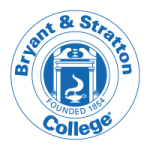In a nutshell, a human resource specialist is the face of an organization.
They are the link between a company and its staff.
Human resource managers help keep employees happy.
Some of their duties include recruiting, managing employee benefits, and organizing training.
Often, they will act as a mediator and negotiator between upper management and employees.
If you enjoy interacting with people, helping to solve problems, and like a fast-paced work environment, a degree in Human Resources management may be for you.
Read on to find out more about what courses the degree offers, what you can do with it, and how much you can make with a Human Resources management degree.
What Will I Learn In A Human Resources Management Degree Program?
A good human resource management degree program will cover everything you need to confidently enter the world of helping employees in a variety of workplace settings.
Courses will cover:
- employment and labor laws
- recruitment and staffing
- employee relations
- organizational behavior
- business and personal ethics
- benefits systems
- diversity and inclusion
- operations management
- labor issues
- talent acquisition and retention
- conflict management and resolution
- negotiation
- record-keeping
- psychology
- decision making
- team building strategy
- managing behavior
- unions
- how to measure job performance
- training and professional development
- data collection and storage
- writing reports
How To Choose A Good Human Resources Management Degree Program?
When choosing a school to pursue a bachelor’s in human resource management, there are several factors to consider.
One of the most important is to make sure the school is accredited by the US Department of Education.
When a college is accredited, students can rest assured that their coursework will be recognized by other schools as well as employers.
If a student applies to a school without accreditation, they will not be eligible for state or financial aid.
Next, you’ll need to consider the cost of the program.
Unfortunately, many 4-year programs are expensive.
So, you may be limited in what program you can choose, based on your financial situation.
Flexibility is also something to consider.
Depending on your situation, your needs may require a school that offers day, evening, or weekend classes.
Remote classes may also be something that is needed.
As far as courses go, a good program will have an array of course offerings.
These should include record keeping, communications courses, employee rights, and the law as it relates to human resources.
When looking over the course catalog, definitely look for classes about benefits, training, and financial management.
You also want a program that offers an internship program.
Internships are vital learning tools that give you exposure and experience in the field.
How Long Does It Take To Earn A Bachelor’s Degree In Human Resources Management?
A bachelor’s degree in human resource management is traditionally a 4-year program.
Which means one must usually complete 120 credit hours.
The 4-year timeframe would be if a student went full-time (15 credits per semester).
This time could be shortened by taking classes during winter, sori g, and summer terms.
Obviously, going part-time will extend the time it takes.
How Much Does It Cost To Get A Degree In Human Resources Management?
How much a degree in human resource management will cost depends on the school you choose.
Tuition varies widely depending on many factors.
The biggest difference in price often depends on if the school is public or private.
The average public university can cost between $30,000 to $40,000 per year.
A private college can cost anywhere from $50,000 to $70,000 per year.
Enrolling in an online program can save you a substantial amount of money.
Many online bachelor’s programs can be completed for a total of $43,000 to 64,000 for the entire 4 years.
What Can I Do With A Degree In Human Resources Management?
A degree in Human Resources Management can allow you to work in a variety of positions, and an almost endless number of settings.
Just about every large company or organization has a Human Resources department.
Depending on your interests, you can choose to work in hospitals, school districts, major retail chains, colleges/universities, restaurant chains, hotel chains, non-profit organizations, banks, sports organizations, corporate firms, and airlines.
These are just a few examples of where you can work.
What you can do and the positions you can hold are just as varied.
In general, the human resources department is in charge of hiring new employees, creating an environment that is structured, maintaining standards of health and safety, ensuring employees are well-equipped and trained for their job, and handling any disputes that may arise.
The human resources department includes the employees that help other employees.
The following positions are among the most popular in the field.
1. Human Resources Coordinator
This is an entry-level position in the field.
Duties typically include posting job listings, reviewing resumes, and processing employee paperwork.
The median salary for this position is $50,000 per year.
2. Human Resources Coordinator
A specialist should be able to handle recruiting, initial interviews, staff trying, and implementation of employee benefits.
The median salary for this position is $60,000 per year.
3. Human Resources Manager
This position usually requires about 5 years of experience in the field of human resources.
The manager is responsible for overseeing the Human Resources department and ensuring that it runs smoothly.
The average salary is $113,000.
4. Senior Recruiter
A senior recruiter will be in charge of finding, interviewing, and hiring new employees.
They will make sure all employees have what they need for a successful start with the company.
The median salary for this position is $70,000 per year.
5. Human Resources Generalist
This position entails organizing new staff orientations, and employee improvement plans, and developing and executing employee guidelines.
The median salary for this position is $59,000 per year.
6. Training and Development Manager
This position involves the manager developing and implementing training and professional development for employees.
They will also assess the training needs of employees.
The annual salary is approximately $59,000 per year.
7. Labor Relations Specialist
This position usually involves working for government agencies, labor organizations, or unions.
This specialist will act as a liaison between management and labor.
They create proposals, create contracts, and assist in communication.
The median salary is $85,000 per year.
8. Director Of Employee Experience
This is a relatively new position within the field.
It’s also one of the most exciting.
The director of employee experience will be in charge of onboarding new employees.
They are also in charge of ensuring the workplace is rewarding, positive, and enjoyable.
The director will develop employee appreciation and recognition programs, team building activities, and staff social functions, and develop and analyze surveys.
The median salary for this position is $147,000 per year.
What are Some Reasons To Choose A Career In Human Resources Management?
Besides getting an above-average salary (approximately $20,000 more than most other occupations), there are a ton of personally fulfilling aspects to working in human resources, including:
- helping to create a diverse and equitable workplace
- helping others excel in their positions
- every day is different
- getting to work with a diverse range of people
- welcoming new employees and making them feel at home
- a sense of pride in helping others solve problems
- helping to build a company from the ground up
- building a positive reputation for a company
Should I Get A Degree In Human Resources Management?
According to the US News Career outlet, human resource careers are ranked among the top 100 best jobs in the United States.
It’s definitely a great job for those who love interacting with people and enjoy being a team player.
The salary is about $20,000 more than the average occupation in the United States.
With a degree in Human Resources, you’ll have your choice of settings in which to work.
It will also be easy to find a new job if you, for some reason, need to relocate.
Wherever you choose to work, the position will guarantee you great benefits, such as health insurance, vacation time, sick leave, and retirement plans.
Many companies also offer their employees perks.
For instance, if you work in the Human Resources department of Hilton hotels, you get free hotel stays anywhere in the world.
Employees of Cheesecake Factory get free meals and tuition reimbursement.
These are just a few examples of perks that you can receive working in human resources.
On the other hand, getting a degree in human resources can be time-consuming and expensive.
The job itself can be fast-paced, stressful, and requires patience.
These are all things to think about before making a final decision.
But if you possess a love for helping people succeed, a job in Human Resource Development may be a good choice.
Best Human Resource Management Schools by State
Alabama
Alaska
Arizona
Arkansas
California
Colorado
Connecticut
Delaware
Florida
Georgia
Hawaii
Idaho
Illinois
Indiana
Iowa
Kansas
Kentucky
Louisiana
Maine
Maryland
Massachusetts
Michigan
Minnesota
Mississippi
Missouri
Montana
Nebraska
| Rank | School | |
|---|---|---|
| #1 | University of Nebraska Omaha | |
 |
#2 | Bellevue University |
 |
#3 | Hastings College |
 |
#4 | Walsh College |
 |
#5 | Capella University |
 |
#6 | Concordia University- St. Paul |
 |
#7 | Regis University |
 |
#8 | Colorado State University |
 |
#9 | Portland State University |
| #10 | Avila University |
Nevada
New Hampshire
New Jersey
New Mexico
New York
North Carolina
North Dakota
Ohio
Oklahoma
Oregon
Pennsylvania
Rhode Island
South Carolina
South Dakota
Tennessee
Texas
Utah
Vermont
| Rank | School | |
|---|---|---|
 |
#1 | Houghton College |
 |
#2 | Merrimack College |
 |
#3 | St. John Fisher University |
 |
#4 | Geneva College |
 |
#5 | Granite State College |
 |
#6 | Bryant University |
 |
#7 | Walsh College |
 |
#8 | Western Governors University |
 |
#9 | University of Phoenix Online |
 |
#10 | Ohio State University |
Virginia
| Rank | School | |
|---|---|---|
 |
#1 | University of Richmond |
 |
#2 | ECPI University |
 |
#3 | Bryant and Stratton College |
 |
#4 | Liberty University |
 |
#5 | Hampton University |
 |
#6 | Regent University |
 |
#7 | Bluefield University |
 |
#8 | Desales University |
 |
#9 | University of Louisville Online |
 |
#10 | Strayer University |































































































































































































































































